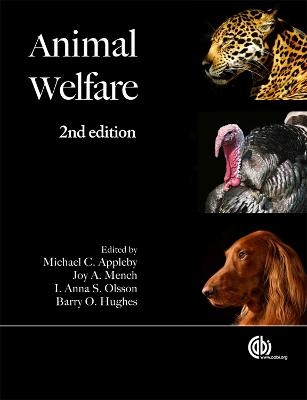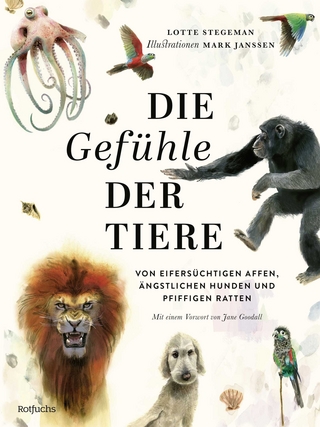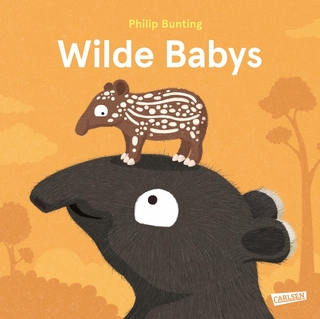
Animal Welfare
CABI Publishing (Verlag)
978-1-84593-659-4 (ISBN)
- Titel ist leider vergriffen;
keine Neuauflage - Artikel merken
The welfare of animals continues to increase in recognition and concern throughout the world, with more and more research in the field offering new insights into the optimal conditions and treatment for the animals we live and work with. Providing a broad introduction to the key topics in the welfare of animals large and small, farm and companion, wild and zoo, this fully updated textbook covers ethics, animal pain and injury, health and disease and social conditions, welfare issues and problems, their assessment, and solutions. With contributions from renowned international experts Animal Welfare, 2nd Edition is an essential resource for students and researchers in animal and veterinary sciences.
(BSc Zoology, PhD Animal Behaviour) is Chief Scientific Adviser with The World Society for the Protection of Animals, based in London, UK. At the Poultry Research Centre and the University of Edinburgh, UK, he carried out research for 20 years on behaviour and welfare of farm animals, before a period with The Humane Society of the United States in Washington, DC. His most recent book is Long Distance Transport and Welfare of Farm Animals (co-editor, 2008). Dr Appleby is a member of the Farm Animal Welfare Council (Farm Animal Welfare Committee from April 2011) and a Visiting Professor at the University of Plymouth and the Scottish Agricultural College. (BSc Zoology, PhD Animal Behaviour) is Chief Scientific Adviser with The World Society for the Protection of Animals, based in London, UK. At the Poultry Research Centre and the University of Edinburgh, UK, he carried out research for 20 years on behaviour and welfare of farm animals, before a period with The Humane Society of the United States in Washington, DC. His most recent book is Long Distance Transport and Welfare of Farm Animals (co-editor, 2008). Dr Appleby is a member of the Farm Animal Welfare Council (Farm Animal Welfare Committee from April 2011) and a Visiting Professor at the University of Plymouth and the Scottish Agricultural College. (BA Biology, DPhil Ethology and Neurobiology) is a Professor of Animal Science and the Director of the Center for Animal Welfare at the University of California, Davis. She conducts research on the behaviour and welfare of poultry and small laboratory animals, with a particular emphasis on management and environmental enrichment. She serves on numerous national and international committees and boards that address issues related to farm and laboratory animal welfare, and teaches courses on animal welfare and animal ethics. Anna Olsson (I. A. S. Olsson) is Researcher and Group Leader at i3S-Institute for Research and Innovation in Health, University of Porto since 2004. She has a background in animal science and holds a PhD in ethology from the Swedish University of Agricultural Sciences. Her research focuses on behaviour and welfare of domestic (laboratory, farm and companion) animals and ethics of (animal) research and technology. She has established and coordinates training in laboratory animal science for researchers at i3S (FELASA accredited course). At the University of Porto, she has developed the ethics module for three PhD programs (PDN, GABBA, MCBiology) and is one of the founders of the interdisciplinary art-science module Biolaboratório. Anna Olsson chairs the institutional animal welfare and ethics review body since 2010. She is Trustee for Universities Federation of Animal Welfare / Humane Slaughter Association (since 2016) and Member of the Scientific Advisory Board for the Swiss 3Rs Competence Centre (since 2018). She is Editorial board member for the journal Laboratory Animals (since 2004) and academic editor for PLOS ONE (since 2016). She is the co-editor of two textbooks Animal ethics in animal research (Cambridge University Press) and Animal Welfare (CABI International). is a veterinary surgeon, now retired, who worked from 1966 to 2004 at the Poultry Research Centre and the Roslin Institute at Edinburgh. His research was on poultry behaviour and welfare, focussing especially on specific appetites, laying behaviour, egg shell quality, feather pecking and housing systems. He headed the Ethology Department from 1988 to 1997 and was Institute Named Veterinary Surgeon and Chair of the Ethics Committee from 1993 to 2004. He was also a Tutor in the Open University on Biology, Brain and Behaviour and Lecturer on Edinburgh University's MSc course in Applied Animal Behaviour and Welfare. He was Editor of British Poultry Science from 1985 to 2010 and remains on the Editorial Board. is a veterinary surgeon, now retired, who worked from 1966 to 2004 at the Poultry Research Centre and the Roslin Institute at Edinburgh. His research was on poultry behaviour and welfare, focussing especially on specific appetites, laying behaviour, egg shell quality, feather pecking and housing systems. He headed the Ethology Department from 1988 to 1997 and was Institute Named Veterinary Surgeon and Chair of the Ethics Committee from 1993 to 2004. He was also a Tutor in the Open University on Biology, Brain and Behaviour and Lecturer on Edinburgh University's MSc course in Applied Animal Behaviour and Welfare. He was Editor of British Poultry Science from 1985 to 2010 and remains on the Editorial Board. (BA Biology, DPhil Ethology and Neurobiology) is a Professor of Animal Science and the Director of the Center for Animal Welfare at the University of California, Davis. She conducts research on the behaviour and welfare of poultry and small laboratory animals, with a particular emphasis on management and environmental enrichment. She serves on numerous national and international committees and boards that address issues related to farm and laboratory animal welfare, and teaches courses on animal welfare and animal ethics. Anna Olsson (I. A. S. Olsson) is Researcher and Group Leader at i3S-Institute for Research and Innovation in Health, University of Porto since 2004. She has a background in animal science and holds a PhD in ethology from the Swedish University of Agricultural Sciences. Her research focuses on behaviour and welfare of domestic (laboratory, farm and companion) animals and ethics of (animal) research and technology. She has established and coordinates training in laboratory animal science for researchers at i3S (FELASA accredited course). At the University of Porto, she has developed the ethics module for three PhD programs (PDN, GABBA, MCBiology) and is one of the founders of the interdisciplinary art-science module Biolaboratório. Anna Olsson chairs the institutional animal welfare and ethics review body since 2010. She is Trustee for Universities Federation of Animal Welfare / Humane Slaughter Association (since 2016) and Member of the Scientific Advisory Board for the Swiss 3Rs Competence Centre (since 2018). She is Editorial board member for the journal Laboratory Animals (since 2004) and academic editor for PLOS ONE (since 2016). She is the co-editor of two textbooks Animal ethics in animal research (Cambridge University Press) and Animal Welfare (CABI International). Dr Andy Butterworth MRCVS is Reader in Animal Science and Policy in the Clinical Veterinary School, University of Bristol, UK. Andy teaches and carries out research in the areas of animal disease and production, animal welfare and legislation, behavioural biology, and animal welfare assessment in both farm and wild animals. He is a member of the European Food Standards Agency Scientific Panel on Animal health and Welfare, and chairs the EEER (Ethics, Economics, Education and Regulation) of the Farm Animal Welfare committee in the UK. He is editor in Chief of Elsevier's journal Veterinary and Animal Science, he lectures widely and publishes in books, and the academic and trade press, with over 200 publications to date. Michael Cockram is a Professor at the Atlantic Veterinary College, University of Prince Edward Island, Canada where he is the Chair in Animal Welfare, at the Sir James Dunn Animal Welfare Centre. Dr Cockram has a veterinary and academic background in animal welfare. He obtained his veterinary degree and PhD in the UK and then worked at the University of Edinburgh. He studies the welfare implications of the management of animals, and the relationships between health, physiology, behaviour and animal science. He has published research on the transport, lairage and handling of livestock and poultry, and other animal welfare issues. Much of this research was conducted within commercial slaughter plants. He has worked with industry groups to apply the results of scientific research to commercial situations and has participated in the development of several animal welfare codes of practice. His previous book chapters have been on the welfare implications of health and disease, sheep transport and the effects of handling, transportation, lairage and slaughter on cattle welfare and beef quality. Dr Cockram serves as the Welfare and Behaviour Section Editor for animal: an international journal of animal bioscience, he organised the 2018 International Congress of the International Society for Applied Ethology and is currently the Chair of the Large Animal Subcommittee of the Canadian Veterinary Medical Association, Animal Welfare Committee. Francisco Galindo is a Professor in the Faculty of Veterinary Medicine of the National Autonomous University of Mexico (UNAM). He obtained a degree in Veterinary Medicine from the same University (1990) and later a PhD in Animal Behaviour and Welfare (Cambridge, UK, 1996). In 1995 he was appointed as Head of the Department of Ethology at UNAM and since then started teaching Animal Behaviour and Welfare to undergraduate and graduate students. He has supervised several graduate thesis on areas related to Applied Ethology, Animal Welfare, Sustainability and Conservation. He has been Coordinator of the Animal Welfare Committee of the National Animal Health Council in Mexico, as well as Programme Coordinator for the Latin American office of the International Fund for Animal Welfare. Through this work he contributed to the elaboration of Animal Welfare Legislation in Mexico and in other Latin American countries. He is Coordinator of the WOAH Collaborating Centre on Animal Welfare and Sustainable Livestock Systems. He has a strong interest in the integration of animal welfare and sustainability, and has published more than 80 scientific papers on those topics. He is co-editor of Etología Aplicada, one of the first publications of the topic in Spanish, and of Animal Welfare 3rd edition. Georgia Mason is a behavioural biologist a the University of Guelph, Canada, who studies how animals adapt (or fail to adapt) to captive housing conditions, especially conditions that meet their physiological needs but are too small or monotonous to allow natural behaviour. She is also interested in the validation of animal welfare indicators. Birte Nielsen is an applied ethologist currently working as Assistant Scientific Director at UFAW (Universities Federation for Animal Welfare) and their sister-charity HSA (Humane Slaughter Association). She has previously worked at the National Institute of Agricultural Research (INRA) in France and Aarhus University, Denmark. Her research has spanned the science of olfaction, studying the behavioural responses of rats to different smells, and feeding behaviour in ruminants. Birte has in-depth experience in experimental behaviour science on rats, growing pigs, dairy cows, broiler chickens and broiler breeders, and has been actively involved in work on horses, sows, laying hens and even ostriches. Anna Olsson (I. A. S. Olsson) is Researcher and Group Leader at i3S-Institute for Research and Innovation in Health, University of Porto since 2004. She has a background in animal science and holds a PhD in ethology from the Swedish University of Agricultural Sciences. Her research focuses on behaviour and welfare of domestic (laboratory, farm and companion) animals and ethics of (animal) research and technology. She has established and coordinates training in laboratory animal science for researchers at i3S (FELASA accredited course). At the University of Porto, she has developed the ethics module for three PhD programs (PDN, GABBA, MCBiology) and is one of the founders of the interdisciplinary art-science module Biolaboratório. Anna Olsson chairs the institutional animal welfare and ethics review body since 2010. She is Trustee for Universities Federation of Animal Welfare / Humane Slaughter Association (since 2016) and Member of the Scientific Advisory Board for the Swiss 3Rs Competence Centre (since 2018). She is Editorial board member for the journal Laboratory Animals (since 2004) and academic editor for PLOS ONE (since 2016). She is the co-editor of two textbooks Animal ethics in animal research (Cambridge University Press) and Animal Welfare (CABI International).
Introduction: Introduction Part I: Issues 1: Animal ethics 2: Understanding animal welfare Part II: Problems 3: Environmental challenge and animal agency 4: Hunger and thirst 5: Pain 6: Fear and other negative emotions 7: Behavioural restriction Part III: Assessment 8: Health and disease 9: Behaviour 10: Physiology 11: Preference and motivation research 12: Practical strategies to assess (and improve) welfare Part IV: Solutions 13: Physical conditions 14: Social conditions 15: Human contact 16: Genetic selection Part V: Implementation 17: Economics 18: Incentives and enforcement 19: International issues
| Erscheint lt. Verlag | 13.6.2011 |
|---|---|
| Co-Autor | Dominique Blache |
| Verlagsort | Wallingford |
| Sprache | englisch |
| Maße | 189 x 246 mm |
| Gewicht | 920 g |
| Themenwelt | Kinder- / Jugendbuch ► Sachbücher ► Tiere / Pflanzen / Natur |
| Veterinärmedizin | |
| Weitere Fachgebiete ► Land- / Forstwirtschaft / Fischerei | |
| ISBN-10 | 1-84593-659-0 / 1845936590 |
| ISBN-13 | 978-1-84593-659-4 / 9781845936594 |
| Zustand | Neuware |
| Informationen gemäß Produktsicherheitsverordnung (GPSR) | |
| Haben Sie eine Frage zum Produkt? |
aus dem Bereich


